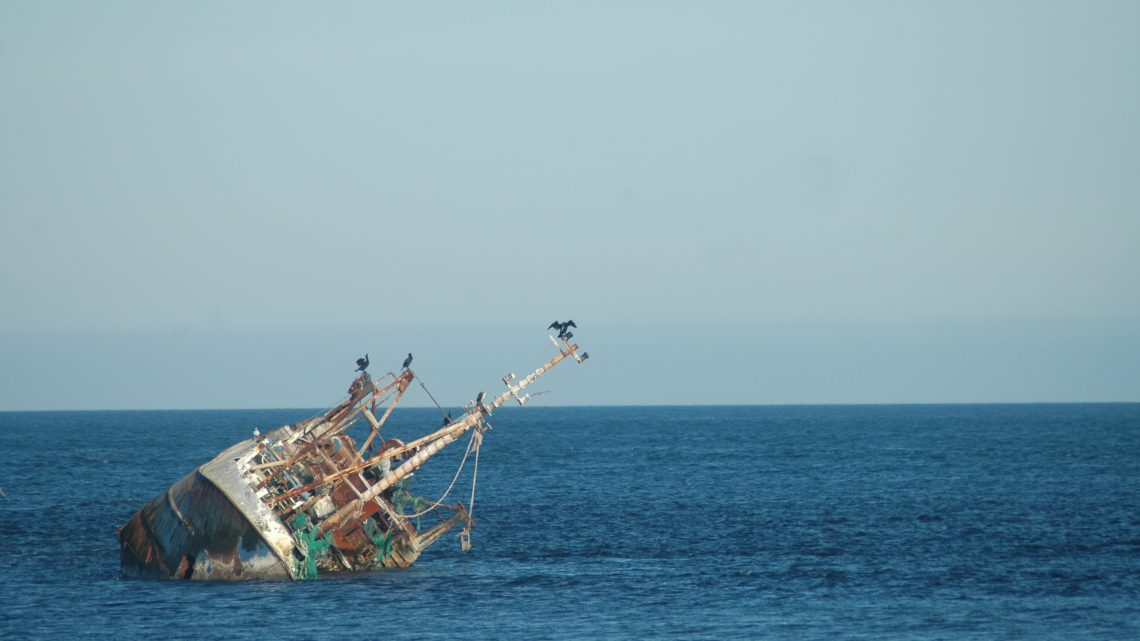Sabbath School Lesson for September 22-28, 2018
Outline
After Paul appeals to the Roman emperor, quite a process awaited him in getting the justice to which he was entitled. This week’s lesson touched on his final years as God’s emissary to the Gentiles…
- getting ready to sail to Rome–Paul’s warning that it would be unsafe for them to leave so close to winter (Sunday)
- having their ship wrecked, trying to reach an adequate harbor to spend the winter–Paul reassures them that no lives would be lost (Monday)
- reaching the island of Malta–Paul’s opportunity to heal (after being healed from a snakebite himself) (Tuesday)
- arriving in Rome–a fine welcome of the believers and being given a light house arrest (Wednesday)
- preaching and spreading the gospel to many influential people in Rome and elsewhere (Thursday)
Introduction
After spending ten years preaching and building churches throughout modern-day Turkey and Greece, Paul spent the next five years in the custody of Roman authorities.
This change of venue did not dampen the spirits of Paul though. He continued to use his evangelistic talents and influence to the glory of God. As a matter of fact, it seems he was so persuasive and well-liked that he was allowed to travel again for another two years before his execution by Nero.
Memory Text: ” ‘Do not be afraid, Paul; you must stand before Caesar.’ “ Acts 27:24 ESV
How tender and uplifting were God’s messages to Paul all along the way. We too can experience the joy and hope that Paul enjoyed, affectionately expressed in his letters throughout the New Testament.
There is no need to fear. Even when standing before the ruler of the universe…our Judge is also our Savior. That was the message Paul preached and the one we are to embrace. It alone will see us through the many challenges and trials that come upon us multiple times through life.
Sunday: Sailing to Rome
With two years of confinement at Caesarea under Felix and then Festus, Paul’s wanderlust should have been satisfied with the prospect of a sea journey to Rome. However, being so late in the summer was a very real cause of concern for Paul, whose warnings went unheeded by those in charge.
They barely arrived on the island of Crete at Fair Havens, when it was decided that they needed a safer harbor to spend the winter. Phoenix was only forty miles west of them on the same island, and seemed like a more suitable port to spend the winter.
Once again, Paul predicted trouble if they chose to sail again. And this was found to be true when a great storm soon came up, causing them to miss their port of destination entirely and almost lose their lives.
Discussion Questions:
Read Acts 27:1-3 and 25:25. Notice that the story seems to be written by an eyewitness: “it was decided that WE should sail to Italy”, etc. Do you think Luke, the author of Acts, may have been with them on this voyage? What other things about the story seem to point to this popular belief? Why would Julius be a centurion of the Augustan Regiment? What does this tell us about his status and participation in the story?
Read Acts 27:9-12. Why would they likely not listen to Paul’s warning at this point in their journey? Notice that Paul said here that their lives were in danger. Would this mean the same as they would lose their lives?
Read Acts 27:21-24. Why do you think God spared the lives of all aboard the ship? Why not just Paul?
Monday: The Shipwreck
Almost everyone who has survived a disaster, whether natural or man-made, shares similar feelings of the supernatural being involved. Circumstances beyond our control point to powerful forces beyond our sight. In some cases, the choices and actions of man are pivotal to survival, but frequently, only God seems able to direct the events and the outcome.
The shipwreck Paul and his fellow travelers experienced gave them all pause to consider the potency of the God Paul was preaching about. Paul not only predicted the storm, but he gave them advise on how to save themselves. And by this time, they were ready to listen to Paul’s words.
- He told them they would all survive, something that gave them hope.
- He told them not to let down the skiff, but to stay with the ship.
- He told them to eat, so they would be able to swim to shore later.
Discussion Questions:
Read Acts Acts 27:29-32. What kind of faith did they have in Paul’s words by this time? How hard would it be for them to cut the ropes to their seemingly only means of escape?
Read Acts 27:9, 19-21 and 33-36. The Fast referred to the Day of Atonement. For what other reasons had they likely not been eating as they should when the storm hit? Why was it important for them to eat, in order to survive the shipwreck [food gave them strength]?
Read Acts 27:22 and 37. Why would it have taken a miracle for this many people to be saved, following such a terrible storm? And how sure must Paul have been that his bold prediction was from God?
Tuesday: In Malta
To have been blown 475 miles off-course indicates a massive storm on the Mediterranean Sea that year. But the weakened crew and passengers finally made it to Malta, a very small island just south of Sicily.
Their sea journey was almost over, but would have to be delayed for the rest of the winter. Obviously, no one was willing or able to risk another voyage after experiencing such a horrific adventure at sea.
The adventure wasn’t quite over, however. As Paul reached his hand down to release a load of kindling on the fire they were building to get warmed up on the beach, a poisonous snake jumped up from the heat and bit Paul on the hand.
The immediate thought of those around Paul was that he was receiving retribution for something bad he had done. But after merely shaking off the beast, they noticed that Paul did not swell up or die, as he normally would have from such a vicious bite. Their superstitious minds then saw no other possibility other than Paul must be some kind of god.
A local dignitary, named Publius, graciously took the survivors to his home for a few days to begin their recovery after the storm. When Paul healed this man’s father, sick with a fever and dysentery, his reputation for healing abilities was established. Paul spent the rest of his time on the island, healing its residents of their sicknesses.
No record of conversions is mentioned after Paul’s special ministry of healing that took place on Malta. But no doubt, many were impressed with the Creator God that Paul continuously promoted to all who would listen.
Discussion Questions:
Read Acts 28:1, 2 and 27:25, 26. What was special about the island of Malta? What characteristics and behavior do you see in people who have a reputation for kindness? How does this relate to church today?
Read Acts 28:3-6. How easily do people change their opinions about someone? And what is dangerous about doing so? We are told to “judge not” (Matthew 7:1), but also “by their fruits you shall know them” (v. 20). What’s the difference in these two thought processes?
Read Acts 28:7-10 and Philippians 4:19. Who was really providing for Paul and his fellow travelers? Why are we only promised our needs? Why should we remember that it is acceptable to have desires though? How can we tell if our desires are within God’s will? Can we always know?
Wednesday: Paul in Rome, Finally
As they finally reached the shores of Italia, with just a short distance left by land to travel, Paul was delighted to receive a special welcome before their arrival in Rome. Some Roman believers, including his relatives and former co-workers and converts, traveled several miles south of Rome to provide this encouraging welcome.
Paul was definitely relieved to find that Festus’ letter must have leaned in Paul’s favor, with Festus not finding him guilty of any serious crime. Therefore, he was put under a type of house arrest, instead of being sent to prison.
This meant he had to be chained to a soldier, at his own expense. But he was able to rent a house, earn a living, and live a fairly free existence. It’s been thought that tent-making, his previous occupation, was likely the activity that provided his livelihood at this time.
Discussion Questions:
Read Acts 28:15, 16. What affect did the shipwreck have in making the word spread about Paul’s arrival? What were some of the things happening to Paul at this time that encouraged him?
Read Acts 28:17. Why did Paul usually go to the Jewish leaders first, when entering any new territory for evangelism? How hard would it have been for Paul to identify with the Jews, after their cruel treatment of him back in Jerusalem?
Read Acts 28:21, 22. Why would the Jewish leaders in Rome have been more open to hearing Paul than other Jewish synagogues?
Thursday: The Victory of the Gospel
Paul seemed to have more success with the Jews in Rome than he did in Jerusalem. At least they listened, and as far as we know, didn’t enact plots to kill him. But there were still those who would not hear his assertion that Jesus fulfilled the Messianic prophecies they supposedly knew so well.
Paul described their foolish rejection by quoting Isaiah:
” ‘Go to the people and say: “Hearing you will hear, and shall not understand; And seeing you will see, and not perceive; For the hearts of this people have grown dull. Their ears are hard of hearing, And their eyes they have closed, Lest they should see with their eyes and hear with their ears, So that I should heal them.” ‘ “ Acts 28:26, 27 [taken from Isaiah 6:9, 10]
Among the Jews were those who needed new hearts. David gave them the example of how to get this when he asked of the Lord: “Create in me a clean heart, O God, and renew a right spirit within me.” (Psalm 51:10 KJV) This is the only way to have victory over sin, victory over eyes that don’t see and ears that don’t hear. Because when we shut ourselves off to God’s truth, we are shutting ourselves off to the only one who can keep us from sinning.
Even though Luke’s story ends with Paul’s first imprisonment in Rome, we have good reason to believe that his work of evangelism triumphantly went forward. It is even thought that he was allowed to make one final missionary journey, before Nero’s execution order finally terminated his life in Rome. We have hints of this journey from the pastoral letters he wrote to Philemon, Timothy, Titus, and others.
Discussion Questions:
Read Acts 13:46, 47, John 1:8-11, and Isaiah 53:3. In what way was the Jews’ rejection of Christ a fulfillment of prophecy?
Read Luke 2:27-32 and Acts 10:45. How did both Jews and Gentiles benefit from Jesus’ life and ministry on earth? Why was it significant for the Jews to know that not only could Gentiles be saved, but they could receive the same gifts from the Holy Spirit?
Read Acts 28:30, 31. Why do you think Luke finishes his story at this point in Paul’s life? What main points are we to gather from Luke’s record of the early church? What lessons can be applied to God’s church today?
Conclusion
The book of Acts is our New Testament link between the Gospels and the Epistles. Although it mostly documents the evangelistic activities of the apostles, mostly Peter and Paul, it clearly introduces us to the ministry of the Holy Spirit. It might be better to think of it as “The Book of Acts of the Spirit of Christ working in and through the Apostles”.
Some notable lessons for our church today might be derived from its study…
- we are all sinners, in need of redemption; even the apostles were not above mistakes
- we are called to witness to all people, irrespective of race, class, or gender
- we must follow God’s sovereignty, exalting Jesus at every turn of events, even the ugly ones
- we should humbly seek the Holy Spirit’s power and guidance, in order to fulfill our mission
- we, as individuals, have a duty to support and nurture each other along the way, even when we disagree on methods or strategies to achieve our goals
- we can accomplish so much more when we share our spiritual gifts and work with our brothers and sisters in Christ (no one person can do it all)
This quote from The Acts of the Apostles, by Ellen G. White, underscores the role of each member of God’s church…
“Christ has given to the church a sacred charge. Every member should be a channel through which God can communicate to the world the treasures of His grace, the unsearchable riches of Christ. There is nothing that the Savior desires so much as agents who will represent to the world His Spirit and His character. There is nothing the world needs so much as the manifestation through humanity of the Savior’s love. All heaven is waiting for men and women through whom God can reveal the power of Christianity.” p. 600
A devotional thought from an admired Christian, Brenda Walsh, further reminds us…
“Filling your mind with negative nonsense is not only bad for your personality, but it doesn’t make you very endearing to others – and more importantly . . . separates you from God! It’s impossible to be negative and have a Christ-like attitude…in Psalm 68:3 it says, ‘But let the righteous be glad; let them exult [rejoice] before God; Yes, let them rejoice with gladness.’ Wow! It doesn’t get clearer than that – God wants His children to be glad! No matter what crisis you are going through, or disappointing event that threatens to ruin your day – give it to Jesus and go forward with a positive attitude knowing God’s in full control and He has you covered.”
Therefore, both these authors point us to the way to win souls. It isn’t by pounding them with “negative nonsense” (our human speculations about our impending doom, for example–most people already sense the seriousness of the times we live in). What they desire, what they demand, is an alternative to the harsh circumstances many endure on this earth. Sharing God’s love seems to be the most suitable way to be ready for Jesus’ soon return, both for others and ourselves!
Next Week’s Lesson: new quarter–“Oneness in Christ” (Less. 1–Creation and Fall)
To read the Sabbath School Lesson Quarterly or see more resources for its study, go to https://www.absg.adventist.org/
All Outlook blogposts by Teresa Thompson, are at http://outlookmag.org/author/teresathompson/









